- صفحه اصلی
- درباره ما
- About
Muhammad Taqi Sarmad
Muhammad Taqi Sarmadi (3 September 1952/1 Shahrīvar1331) is an Iranīan writer, historian, medical researcher and social activist. He was born in Khumeīn and studied at Tehran. (Figure 1)
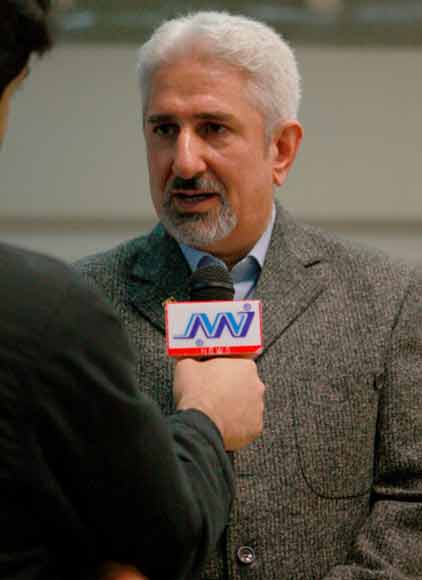
Figure 1. Muḥammad Taqī Sarmadī
Muḥammad the son of Ibrāhīm, a courteous merchant and Zahra, graduated at Tehran. His father who was a prominent Muslim figure in Khumeīn emigrated to Tehran in 1962/1341.
In 1974/1353 Muhammad Taqi married Faṭima Sarmadi, a researcher of significant standing. They raised their children: Maryam (a jurist), Rezā (a dentist), and Muḥammad (a graphist) securely within the Muslim faith, arranging much curricular tuition for them.
Sarmadī after authoring and publishing his medical and non-medical works in Persian and English, plus English on-line articles, immediately was hailed as a celebrated writer and researcher throughout the world. A prompt rush to buy his momentous works in both Iran and abroad including Germany and in the United States of America he continued to conduct more research in Persian and English. Muḥammad Taqī Sarmadī also vigorously has been campaigning for mandatory protection and support of the blind throughout his life, calling the national backing and guardianship of blind children and adults against blindness, a “moral commitment”. (Figure 2)
Becoming a public figure
Sarmadī preferred not to have his career as historian, researcher, benevolent and public-spirited individual by too much personal attention, as he had always tried to remain independent and private in his researches and life. At seminars, congresses and other related societies and meetings, the organizers would announce that Sarmadī was present, those who were present would burst into applause.
Scientific Reviewer
He has been scientific reviewer of:
1- Scientific books reviewer of The Iranian Research Center for Ethics and Law in Medicine-Shahid Beheshti University of Medical Sciences.
2- Scientific articles reviewer of The Iranian Research Center for Ethics and Law in Medicine-Shahid Beheshti University of Medical Sciences.
Works
A selection of his works are as follows:
1- A Research on the History of World Medicine and Treatment up to the Present Era (A twenty–volume encyclopedia). Book 1 of the encyclopedia under the title “pioneers and Islamic Medicine” has been translated into English by professor Saeed Kanani Zanjani (MD); 2002-2008.
2- Guidebook and Vanguard of the mentioned encyclopedia in Persian, 2002.
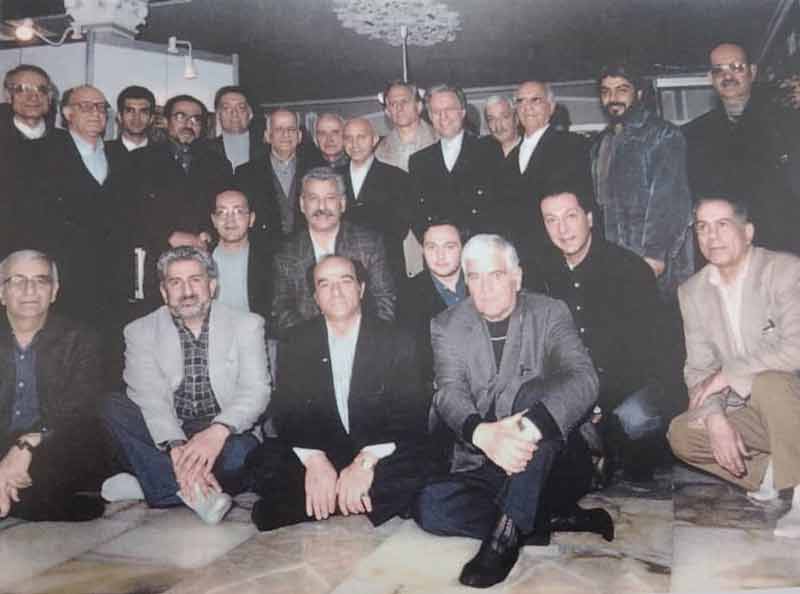
Figure 2. Muḥammād Taqī Sarmadī among a group of members and personnel of “White Cane Institute”.
Sitting, from right to left: Muḥammad Taqī Sarmadī (second).
Standing, from right to left: Muḥammad E’timād (second), Muḥammad Ḥassan Asgharniā(fourth).
Dr.Mehdī Muḥaqiq (sixth),and Ilāhī Qumsheī (seventh).
3- Guidebook and vanguard of the mentioned encyclopedia in English, 2002.
4- Shah-Koshi [Encyclopedia of Torture and Slaughter of Kings, Geniunes and Powers of Iran (five volumes), 2005.
5- Rhazes, the Axis of World Medical Works, 2013.
6- Avicenna, the Axis of World Medical Works, 2013.
7- Legal Homicide (a series of two-volume), 2014.
8- A Research on the History of Iran and World Dentistry (a series of two-volume), 1398.
9- World Encyclopedia (a series of five-volume), 2019.
10- Islamic Medicine, 2015.
11- History of the Starting point of Islam and the Life of Faṭima (Peace be upon Her), 1919.
12- Evaluation of the Body and Soul Based on Islamic Medicine, 2010.
13- Children Herbal Medicine Based on Traditional Medicine, 2014.
14- Sarmad cookery, 2014.
15- Biography of Dr.Muḥammad Moʻien (under publishing).
16- A History of Post in Iran (under publishing).
17- Managing editor of “Diagnosis and treatment of Pains with the Spinal Column Origin, the Medical work of professor Muḥammad Farjād, 2004.
Conferences, Congresses and Speeches
Muḥammad Taqī Sarmadī has taken part at two International congress and conference:
1- The “First International Congress on Traditional Medicine & Materia Medica”, Tehran, Shahid Beheshti University of Medical Sciences, 6-9 November 2000. In this congress, he presented an article under the title “Traditional Medicine in Different Nations” and delivered speech regarding his researches, in English.
2- The Congress “Our Heritage in Medicine: Past, Present and Future”. Sarmadī presented his scientific article “The Persian Founders of Islamic Medicine” and delivered a detailed speech. (Figure 3)
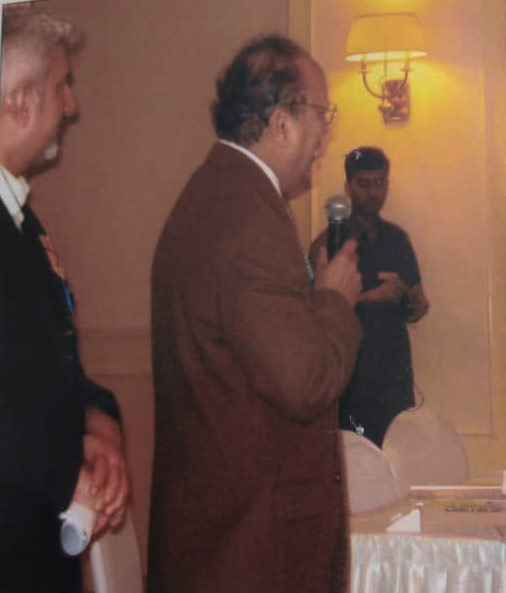
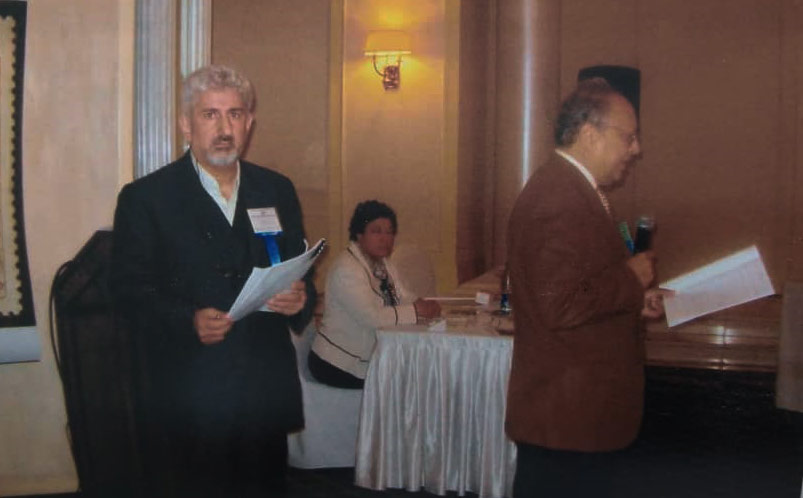
Figure 3. Introduction of Muḥammad Taqī Sarmadī by Dr.Hussein Nagamia the head of “IMANA” (Islamic Medical Association of North America) as an orator (speaker) to the International Conference “Our Heritage in Medicine : Past, Present and Future”, 24-30 January 2005, Sheraton Hotel, Dubai, UAE. The title of speech: “The Persian Founders of Islamic Medicine”.
3- Sarmadī was also invited to take part at a conference “Life Style Dilemmas Therapeutics Modalities for the 21st Century” in California (USA). He submitted an article but did not attend at the conference.
On-line Scientific Papers in English
By creating the following scientific and everlasting papers, Sarmadī has become an international familiar figure throughout the world. More than 50000 people including scientists, researchers, article writers and students have read and enjoyed his internet-linked following papers:
1- “Florence Nightingale who Raised Nursing as a Highly Profession”, SAP (Scientific & Academic Publishing), 2014,4(3).
2- “Pasteur and The Other Researchers Who Provided the Significant Proof for the Fermentation by Living Organisms”, published by: A Peer Reviewed International Journal of Asian Academic Research Associates (AARJMD), “Asian Academic Research Journal of Multidisciplinary”, Volume 2, Issue 4, September 2015.
Commentary
Iran Zeintung (figure 4) printed and issued in Cologne Germany, wrote “A Research on the History of World Medicine and Treatment up to the Present Era” authored by Muḥammad Taqī Sarmadī, has managed to fill an old gap in medical resources of world. The work, which really deserves to be called a medical encyclopedia, is a long scientific journey into antiquity. It traverses through Sumer and Babylon and then moves to Mesopotamia and Iran, and finally goes toward India, China and other countries. It presents detailed information on their medical practices and describes the role of religions, cultures, and superstitions in treating patients. It also provides the readers with a comprehensive overview of ancient medical principles and bases. Among the major issues are: the procedures of diagnosis, early medical practices, medical herbs and its specialties [herbal medicine], major epidemics, the dissection of corpses, physicians etc… (Iran Zeitung, January 3rd, 2000.)
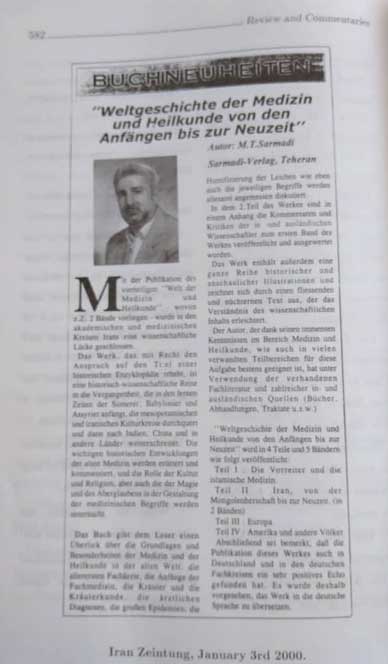
Figure 4. Iran Zeintung, January 3rd ,2000.
Appreciations and commendations
The following list shows a selection of internal and foreign scientific and cultural authorities and papers who have appreciated and commentated Sarmadī’s works:
A-Abroad
1-The Library of Congress, March 3, 2003, The United States of America.
2-International Institute of Islamic Medicine (IIIM) under the auspices of Islamic Medical Association of North America (IMANA), The United States of America.
3- Sacramento Public Library (Arcade Learning Library), The United States of America.
4-The Hamdarad University Level Library, Pakistan.
5-Borzoye Journal, Cologne, Germany, January 2000, No.40.
B-Iran
1-Dr.Ghulām ʻAlī Afrūz, professor and ex-president of Tehran University.
2- Muḥammad Rezā Namanī, university professor and director of “Institute of White cane”.
3-Dr.Rezā Resā, Idaho, USA,1999.
4- professor Nāsser Pouyān (Nāsir pūyān), historian, medical and ethical researcher of “the Iranian Research Center for Ethics and Low in Medicine” Shahid Beheshti University of Medical Sciences.
5- Dr.Iraj Fāṡel, the chancellor of Iranian Academy of Medical Sciences.
6-Dr.Muḥammad Mehdī Muvaḥḥedī gynecologist and medical historian.
7-Dr.ʻAlī Muḥsanī otolaryngologist and surgeon.
8-Proferssor Muḥammad Farjād, Diplome d’État de la F.D.M de Paris.
9-Professor Nāsser Parsa, senior researcher in cancerology, Ministry of Health and Human services, USA.
Press
1- Hamshahri Daily, May 25, 1999.
2- Etelaat Daily, March 19, 1999.
3- Etelaat Daily, International Persian Daily, July 23, 2001, USA.
4- Entekhab Daily, 18 Mehr 1381 (10 October 2002), a comprehensive interview regarding the Twenty-volume Encyclopedia “A Research on the History of World Medicine and Treatment up to the Present Era”.
5- Jalinus [Galen] Monthly, June and July 2001, a comprehensive interview.
Scientific recognition
Because of his profound knowledge and experiences in medical history, herbal medicine and sociology, he has been granted several certificates, diplomas and doctorates.
Three of them are as follows:
1- Medical History Doctorate dedicated by Ghulam ʻAlī Afrūz, ex-president and professor of Tehran University.
2- Medical history training certificate granted by Islamic Medical Association of North America (IMANA).
3- Scientific doctorate dedicated by professor Muḥammad Farjād (Diplome d’État de la F.D. de Paris.
International Book Exhibitions
Sarmadī has taken part at the following Book Exhibitions:
1- International Book Exhibition, Tehran, several years, with interviews.
2- International Book Exhibition, Frankfort, Germany, with interview.
Articles and interviews in Persian
Some of his articles and interviews which have been published and broadcasted are as follows:
1- “Charity and other cultural and social activities in Iran” (interview), Islamic Republic of Iran Broadcasting (IRIB, April 10, 1999).
2- “Book on present minute”, Javan Network IRIB, December 2000. (Interview).
3- Interview regarding “The Day of White Cane”, Gunbad-e-kabod Publication, Oct. 16, 2003.
4- “Persian Gulf, an Everlasting Name on the Crown of Iran”. Sarmad Quarterly, summer and autumn 1381 (2008).
5- “War and Love”, Sarmad Quarterly, spring 1387 (2008).
6- “The Day of White Cane”, Sarmad Quarterly, autumn 1381 (2008).